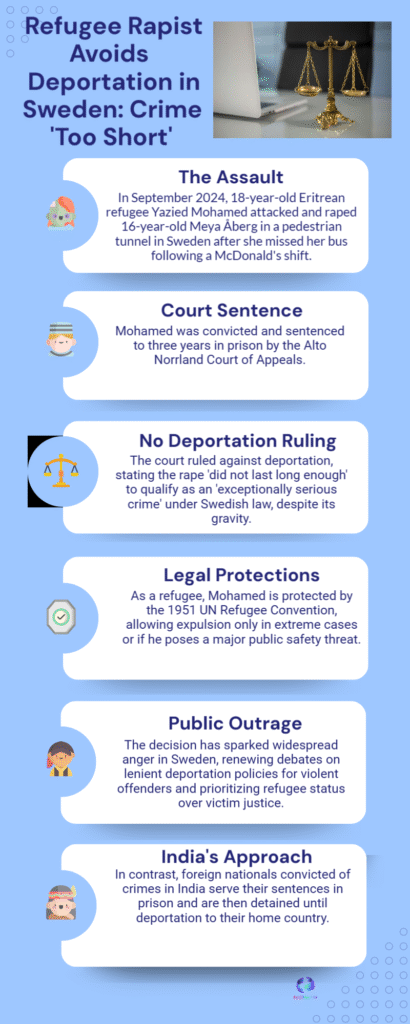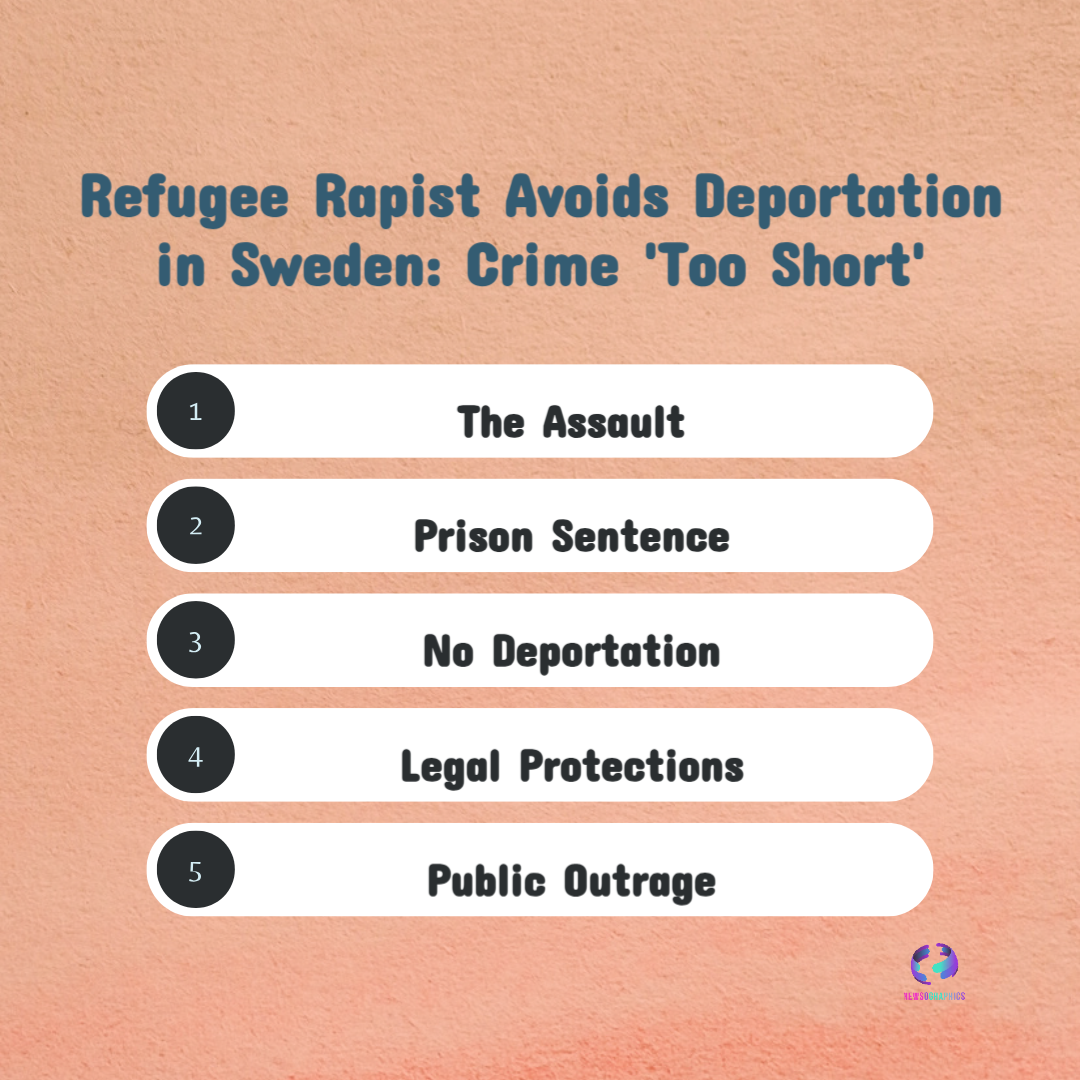A Swedish court ruled a convicted refugee will not be deported because the assault’s short duration meant it did not meet the threshold for “exceptionally serious crime.” Outrage and debate over deportation laws follow.

Swedish Court Rules Refugee Won’t Be Deported Despite Rape Conviction
A Swedish court of appeals has ruled that an 18-year-old Eritrean refugee, Yazied Mohamed, who was convicted of raping a 16-year-old girl, will not be deported after serving a three-year prison sentence because the assault “did not last long enough” to qualify as an “exceptionally serious crime” under deportation law. The decision from the Alto Norrland Court of Appeals has sparked public outrage and renewed debate about Sweden’s deportation rules for refugees convicted of violent offences.
The incident took place in September 2024 when the victim, identified as Meya Åberg, was walking home after missing her bus and was attacked in a pedestrian tunnel. The court acknowledged the gravity and traumatic nature of the assault but found that its short duration meant it did not satisfy the statutory threshold for removal under Sweden’s interpretation of the 1951 UN Refugee Convention and domestic deportation criteria. Critics say the legal test places undue weight on technical definitions rather than the harm caused to victims.
Under Swedish law and the 1951 Refugee Convention, deportation is restricted for refugees unless the crime is considered “exceptionally serious” or the individual poses a major public-safety threat. The appeals court applied that framework in deciding against deportation, noting that each case must be assessed individually and that not all violent crimes automatically trigger expulsion.
The verdict has reignited calls from victim-advocacy groups, some politicians and members of the public for a re-examination of how deportation thresholds are set and applied. Opponents argue that measuring duration to determine seriousness can marginalise victims and undermine confidence in the justice system, while defenders of current law stress Sweden’s international obligations and the need for consistent legal standards.
















